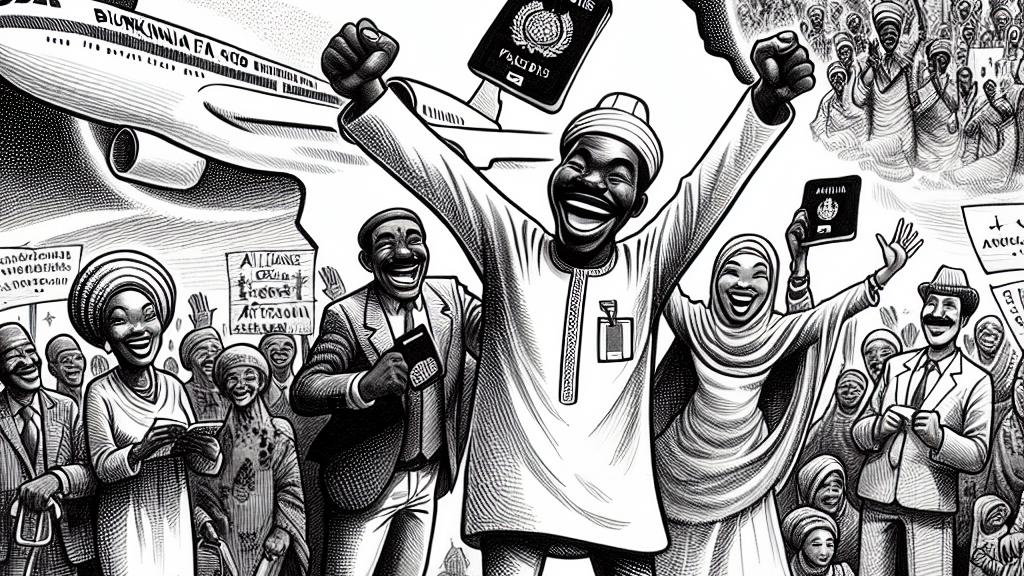Free Travel Plans in West Africa
Overview
- Burkina Faso, Mali, and Niger roll out a groundbreaking visa-free travel initiative within their newly formed alliance.
- This bold decision aligns with their plans to exit ECOWAS, stirring debates on regional unity.
- Leaders stress the significance of historical bonds among their citizens as tensions escalate.

Visa-Free Travel in the Sahel
In a thrilling development, Burkina Faso, Mali, and Niger are paving the way for a revolutionary change in travel by offering visa-free access to their citizens. This means that, at long last, people can freely traverse borders with just their passports. Can you imagine the freedom of visiting a friend or family member in a neighboring country without the usual visa hassles? This initiative is not merely about convenience; it stands as a testament to the long-standing friendships that have flourished among the peoples of these nations over centuries. At the same time, this exciting move comes against the backdrop of significant political tension, as these nations prepare to withdraw from the Economic Community of West African States (ECOWAS). Founded in 1975, ECOWAS has aimed to enhance cooperation among its member states. The recent military coups in these countries have led to friction with the bloc, particularly around issues of democratic governance, creating a situation where these leaders now see an opportunity to forge a new identity together through their new coalition, the Alliance of Sahel States.
The Reaction from ECOWAS
While leaders of the three nations rejoice in the possibilities of this visa-free travel, ECOWAS finds itself in a precarious position. Losing key members like Burkina Faso, Mali, and Niger — which collectively represent about 76 million people — poses a serious challenge to the unity and goals of the bloc. Recently, heads of state from ECOWAS convened in Nigeria, where discussions were heated and focused on the implications of this significant withdrawal. Fears were raised that this new development could jeopardize regional security and economic collaborations. As they discuss ways to stabilize the situation, attention shifts towards the evolving relationships these countries are forming with outside powers. Notably, instead of prioritizing ties with Western nations, Burkina Faso, Mali, and Niger are increasingly embracing partnerships with countries like Russia. This pivot signals not just a strategic realignment; it represents a deeper desire to reclaim autonomy amidst external pressures. How will these changes reshape the future dynamics in West Africa? As these nations embark on this bold new chapter, the potential for new alliances and conflicts looms large — making this a pivotal moment for the region.

Loading...